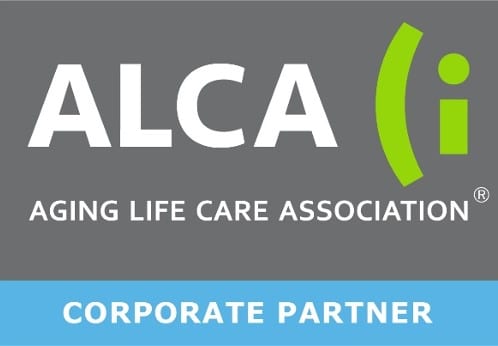As we age, our eyesight changes, leading to eye problems such as cataracts, glaucoma, and macular degeneration. While regular eye exams are important, seniors can also take extra steps to keep their eyesight healthy. With the support of home care providers and loved ones, they can incorporate some of the tips below to ensure they’re doing all they can to protect their vision.
Maintain a Healthy Diet
Eating a healthy diet full of nutrients is essential for good eye health. Nutrients like omega-3 fatty acids, lutein, zinc, and vitamins C and E can help protect against eye problems that come with age. Home care providers can work with seniors to add these foods to their diet:
- Leafy greens such as spinach and kale have lutein and zeaxanthin, which can help lower the risk of macular degeneration.
- Fatty fish like salmon and tuna have omega-3 fatty acids, which can help with dry eyes and protect the retina.
- Nuts and seeds have vitamin E, which can help slow down cataracts.
- Citrus foods are a good source of vitamin C, which can lower the risk of cataracts and macular degeneration.
Keep Moving and Exercise Often
Regular exercise helps blood flow, which is good for the eyes because it ensures they get enough oxygen and nutrients. Activities like walking, yoga, or swimming can also help prevent diabetes, which can lead to serious eye problems, such as diabetic retinopathy.
Shielding Senior Eyes From UV Rays
UV rays from the sun can cause cataracts and eye degeneration. Seniors should always wear sunglasses that block 100% of UVA and UVB rays when they are outside. A wide-brimmed hat can also provide extra protection from harmful UV exposure.
Take Care of Ongoing Health Issues
Health issues like diabetes and high blood pressure can seriously impact eyesight. Uncontrolled diabetes is often connected to eye problems like diabetic retinopathy and cataracts. Seniors should check their blood sugar, keep their blood pressure healthy, and follow their doctor’s advice to avoid eye problems.
Take Breaks to Avoid Strain
With the increased use of digital devices, digital eye strain has become a common problem. Seniors should use the 20-20-20 rule. Every 20 minutes, home care can remind them to look at something 20 feet away for at least 20 seconds.
Seniors can also change screen brightness, make fonts larger, and use blue light filters to help reduce eye strain.
Stay Hydrated
Dry eyes occur more frequently with age. Seniors can counteract this by ensuring they’re drinking the right amount of water each day. Additionally, they may consider using eye drops to help with dryness, as well as cutting back on the amount of caffeine and alcohol they drink.
Assess Lighting in the Home
Bad lighting can make it harder for seniors to see, increasing the risk of falls and accidents. Ensuring living areas are bright enough, as well as reducing glare—which can make it harder to see—are both good ideas.
By incorporating these tips, along with encouraging seniors to make and keep their routine exams, loved ones and home care can help seniors take steps to protect their vision.
If you or an aging loved one are considering Home Care in Chesterfield, MO, please contact the caring staff at Pear Tree Home Care today! (314) 942-9411
Pear Tree Home Care Provides Senior Home Care Services in St. Louis, Ladue, Chesterfield, Town and Country, Clayton, Des Peres, St. Charles, Wildwood, Brentwood, Maryland Heights, Lake St. Louis, O’Fallon, Kirkwood, Webster Groves, Arnold, Oakville, Mehlville, Creve Coeur, St. Louis City, St. Louis County, St. Charles County, Franklin County, Warren County, Jefferson County, and surrounding areas.
Sources:
- https://www.aao.org/eye-health/tips-prevention/seniors
- https://www.nia.nih.gov/health/vision-and-vision-loss/aging-and-your-eyes
- https://lakeeye.com/how-vision-changes-with-age-what-seniors-need-to-know/
- https://drbleonard.com/eye-care/senior-eye-care/
At Pear Tree we’re innovators. Our goal, to create a family of caregivers looking to provide a one of a kind experience to our clientele.
In 2016, our founders noticed a key problem in home care industry that everyone seemed to be ignoring.
It’s too systematic. Home care isn’t one size fits all. Just like people aren’t one size fits all.
That’s where Pear Tree comes in.
We yearn for you to have the best possible care for your loved ones and the peace of mind that comes with knowing they aren’t only in good hands. They’re in great hands. Because, in the end, that’s what we’d want for our family.
It’s proven. When the home care experience is immersive and personalized, you’re going to produce better success rates with healthier family members.
Please, join us in our journey of revolutionizing the home care industry and creating lasting relationships along the way.
This is not the first Home Care agency for Pat, she was the Director of nursing for Kimberly Nurses in 1980 and after the tragic passing of the companies president she opened and co-founded American Nursing Resources Home Health Agency. Pat opened and passed Medicare certification for ANRHHA Clayton and Washington, MO offices.
For Zachary, the name “Pear Tree” is a tribute to his beloved late friend; Wade Abbadessa. Wade worked at his family’s famous restaurant “The Pear Tree” in Macon, until his tragic death in September 2014. Wade lost his battle with a rare form of bone cancer at the young age of 26. His legacy will live on through our company.
- How Home Care Supports Seniors’ Emotional Well-Being - May 23, 2025
- Alzheimer’s Care: Helping Seniors Maintain Their Daily Routine - May 7, 2025
- Helping Seniors Navigate Stairs - April 28, 2025






